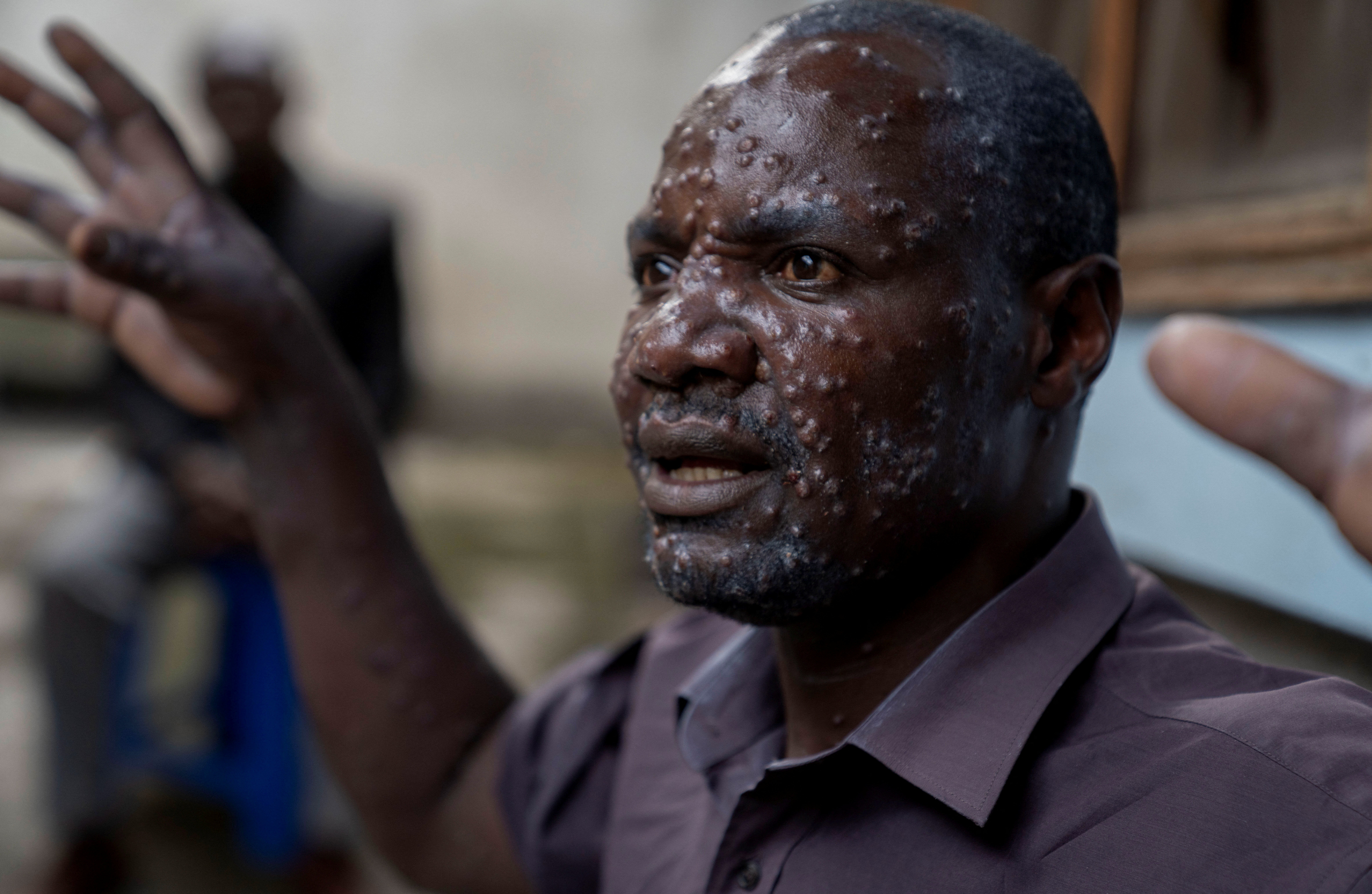First case of mpox strain confirmed in Europe amid global public health emergency
WHO has declared mpox outbreak in parts of Africa a public health emergency
Sweden has recorded Europe’s first case of a new variant of mpox.
At least 450 people have died following an outbreak of mpox Clade 1 in the Democratic Republic of Congo this year.
On Wednesday, the World Health Organization declared a global public health emergency after the virus spread central and east Africa.
Mpox, previously known as monkeypox, has two types, Clade 1 and Clade 2.
Clade 2 caused a public health emergency in 2022 but was deemed relatively mild. Clade 1 has a high fatality rate and a mutant strain of it, called Clade 1b, has spread rapidly.
On Thursday, Sweden’s health and social affairs minister Jakob Forssmed revealed the country had recorded its first case of Clade 1.
“We have now during the afternoon had confirmation that we have one case in Sweden of the more grave type of mpox, the one called Clade 1,” he said at a news conference.

The patient was infected while staying in a part of Africa that saw an outbreak of the disease, Olivia Wigzell, director general of the Swedish Public Health Agency, said.
“The case is the first caused by Clade 1 that has been diagnosed outside the African continent.”
The patient has sought treatment in Stockholm, the agency said.
Sweden has also recorded about 300 cases of Clade 2.
“There are national stocks of vaccines,” Mr Forssmed said.
Mpox belongs to the same family of viruses as smallpox but causes milder symptoms like fever, chills and body aches.
People with more serious infection can develop characteristic lesions on the face, hands, chest and genitals.
It is passed through close physical contact such as during sex, kissing, cuddling or holding hands.
Mpox has reportedly infected more than 14,000 people and killed at least 524 in Africa this year, with more than 96 per cent of fatalities in the Democratic Republic of Congo.
The UK Health Security Agency said no cases of Clade 1 had been recorded in Britain.
However, planning was underway for the arrival of the variant.
“This includes ensuring that clinicians are aware and able to recognise cases promptly, that rapid testing is available, and that protocols are developed for the safe clinical care of people who have the infection and the prevention of onward transmission,” Dr Meera Chand, a deputy director at the agency, said.
WHO director general Dr Tedros Adhanom Ghebreyesus said the emergence of a new clade of mpox and its rapid spread in eastern Congo was “very worrying”.
“On top of outbreaks of other mpox clades in DRC and other countries in Africa, it’s clear that a coordinated international response is needed to stop these outbreaks and save lives.”
Prof Dimie Ogoina from the International Health Regulations Emergency Committee said that the “upsurge of mpox in parts of Africa, along with the spread of a new sexually transmissible strain of the monkeypox virus, is an emergency, not only for Africa, but for the entire globe”.
“Mpox, originating in Africa, was neglected there, and later caused a global outbreak in 2022. It is time to act decisively to prevent history from repeating itself.”
Subscribe to Independent Premium to bookmark this article
Want to bookmark your favourite articles and stories to read or reference later? Start your Independent Premium subscription today.





Join our commenting forum
Join thought-provoking conversations, follow other Independent readers and see their replies
Comments